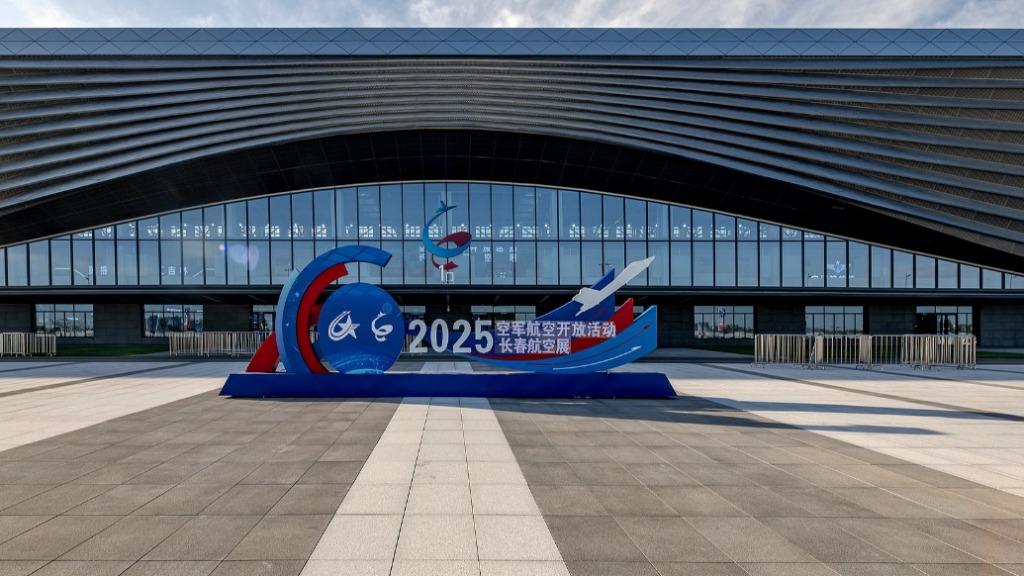
Recently, during a two-plane formation drill following a rehearsal at the Changchun Air Show, two aircraft from Guangdong Huitian Aerospace Technology Co., Ltd. collided due to insufficient clearance. According to on-site reports, one aircraft landed normally, while the other sustained damage and caught fire during landing. The pilots evacuated promptly, and no casualties were reported. After the incident, on-site rescue efforts were swiftly initiated, and the fire was promptly extinguished. The specific cause of the incident remains under investigation.

On September 16, 2025, the Air Force Aviation Open Event Pavilion at the Changchun Aviation Exhibition Hall. (Visual China Photo)
Guangdong Huitian General Aviation is an affiliate of Xpeng Huitian, an innovator in China's low-altitude travel sector that has recently made significant progress in both capital and product development. In July of this year, Xpeng Huitian completed a $250 million Series B financing round, bringing its total funding to over $750 million. The company also secured over RMB 7.2 billion in bank lines and syndicated loans. These funds will be primarily used for the research and development, mass production, and commercialization of its first detached flying car, the "Land Carrier."
Although the incident is still under investigation, the fact that it occurred during the air show rehearsal and involved basic flight subjects such as two-plane formations has aroused public concern about the safety of low-altitude aircraft.
Or potential impact on the brand
As part of the Xiaopeng Motors ecosystem, Xiaopeng Huitian has been committed to the research, development, and commercialization of products such as its "land-based aircraft carrier" since first unveiling its flying car concept in 2020. The company plans to officially begin mass production and deliver its first product in the second half of 2026. The Guangzhou factory has topped out, with completion expected in the fourth quarter of 2025. Nearly 5,000 orders have been received in the Chinese market, with an estimated price of no more than 2 million RMB.
While this incident did not directly involve its core products, the strong association between the company name and brand makes it easy for the public to associate it with the reliability of Xpeng Huitian's technology. Especially with the low-altitude economy still in its early stages of public awareness, safety incidents can easily undermine market confidence. However, ample financial reserves provide a buffer against challenges.
Security incidents trigger industry reflection
As part of the country's strategic emerging industries, the low-altitude economy has received significant policy support in recent years. Several cities have launched low-altitude aviation pilot programs, and concepts such as flying cars and eVTOLs are gradually moving from experimental to application testing. The Civil Aviation Administration of China (CAAC) accepted Xpeng Huitian's application for a Type Certificate (TC) for its flying vehicle (model X3-F) in early 2024, with certification expected by the end of 2025. The company plans to complete its first public flight in Dubai, UAE, in October 2025.
This incident objectively provides the entire industry with a real-world example of flight safety. Aviation experts stated that while aircraft contact during formation flight is unusual, it highlights the limits of human control over systems and the importance of emergency procedures in complex operational environments. Such incidents may prompt the industry to place greater emphasis on simulation testing and redundant design, particularly in optimizing safety logic for unmanned or hybrid flight modes.
On the other hand, this incident may also prompt regulators to strengthen management requirements for flight demonstrations and test flights, such as further tightening approval standards for dual- or multi-aircraft flight formations and strengthening pilot coordination training standards. In the long term, strict safety management will have a positive impact on the healthy development of the industry, but in the short term it may increase compliance costs for companies.
Flying cars face safety and trust challenges
Flying cars have long been viewed by some as a "science fiction concept," with their safety and practicality frequently questioned. This incident, through the dissemination of on-site footage, has, to a certain extent, reinforced the perception among some that flying cars are unsafe. Especially at this stage, when the low-altitude economy hasn't yet gained widespread adoption, every safety incident can be magnified and interpreted, impacting public acceptance and the speed of policy implementation.
However, others believe that the development of aviation technology is always accompanied by accidents and improvements. Even early traditional aviation experienced numerous safety incidents before gradually establishing a comprehensive safety system. The key lies in whether companies and industries can effectively learn from these incidents and make timely improvements.